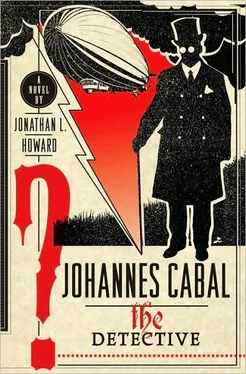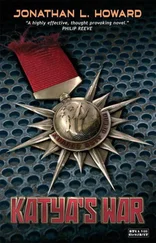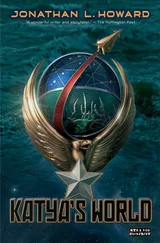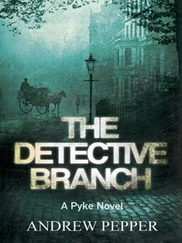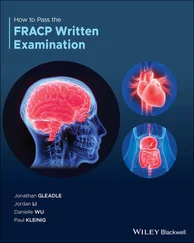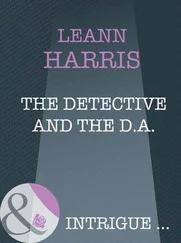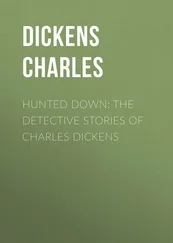“‘He’s finished!’ I shouted with delight across the roar of the river.
“‘He’s no such thing,’ Cabal shouted back. ‘He could get washed free, the water level could drop in high summer, somebody might find him, anything could happen. He’s contained for the moment, but he isn’t finished by a long chalk.’ He started walking back upstream. ‘I need to think.’
“I could barely get a word out of him for the next couple of hours as we trudged along, each on our respective side of the gorge. Then the river started to rise and the gorge to become shallow and, finally, we found another bridge, a properly metalled road bridge this time and joined our paths. It was clear that we were leaving the wild lands, and towards nightfall we reached — quite unexpectedly but very welcome, all the same — a customs post. We were on the border between Senza and Mirkarvia, actually on the Senzan side; I had crossed the border days earlier while delirious. We must have looked very disreputable as we approached the building, and a couple of officers came out to greet us. We went inside and were glad of their offer of a pot of coffee while they questioned us. About the only thing the bandits had left me with were my papers, and these the commanding officer took and studied closely.
“Satisfied, he turned to Cabal and asked to see his passport. Cabal sighed and shrugged. ‘I’m afraid my papers were lost in my escape.’ Then he looked the officer in the eye and said, ‘My name, however, is Gerhard Meissner. I was formerly a docket clerk, first class, in the Mirkarvian Department of Administrative Coordination. I am claiming political asylum.’ I looked at him oddly until he sent me a warning glance that made me compose and comport myself more neutrally.
“The customs officer looked at him oddly and started flicking through the sheets on his clipboard. He found what he was looking for and nodded. ‘Of course, Herr Meissner, you have been expected.’
“Cabal’s face was a picture. He looked utterly blank for a moment. Then he pulled himself together. ‘I am? That is to say, excellent. I must admit, I was worried about the loss of my documents.’
“‘Inconsequential, signor. The Minister of the Interior will need to speak to you, of course. You must be interviewed.’
“‘Of course,’ replied Cabal, but I could see his confusion.
“They organised a horse and trap for us and we rode in silence for the few miles to the nearest town, Sadile. The only time Cabal — I assume his real name was Cabal — spoke was to point out the watercourse running parallel to the road. ‘If that ever dries up,’ he said, ‘we’re all in a lot of trouble.’
* * *
And that’s your story, Enright?” asked Chiltern in the silence.
“That’s my story,” replied Enright. “At least, it’s most of my story. There is a small coda. Two unusual things happened that first night in Sadile. At about two in the morning, the whole town was woken by an explosion. A distant thing it was, several miles away, but the rumble travelled through the earth and tumbled people out of their beds and tiles from the rooftops. Those who had been awake at that hour said there was a strange flash in the sky to the south, which turned to an angry cobalt glow hanging over the forest and took minutes to fade.”
“Oh!” said Tompkinson excitedly. “I know what that was.” He pondered for a moment and then shook his head. “No. No, I don’t. Carry on.”
“And the second thing?” asked Munroe.
“Well, I only found out about that the next morning. Cabal was gone, vanished into the shadows. He obviously had a few secrets he didn’t want the authorities to learn. Nobody was much concerned about his absconding nearly as much as about the outrage that had been committed the night before.
“The archbishop of Parila was visiting the parish. Shortly after midnight, a mysterious stranger had dragged him out of bed at gunpoint. The poor archbishop was forced into his robes and driven down to a small river that runs by the town. There his assailant had put a gun to his head and told him to bless the river and to keep blessing it until he was told to stop. The archbishop, quite reasonably under the circumstances, blessed the river waters for all he was worth. At about two o’clock, there was the blue flash in the sky, reflecting upwards from some sort of explosion in the forest. The archbishop’s assailant seemed very pleased, said something about being able to sleep now, and left him there. The archbishop’s description of the stranger sounded awfully like Cabal.”
There was a respectful silence, broken by Tompkinson saying, “No, I don’t understand.”
“‘I’ll explain it to you next week,” said Munroe. “I’m tired now, though, so I’ll take my leave of you, gentlemen. Good night, Enright. Thank you for that fascinating story.”
They broke up, and started to make their varied ways home. In the cloakroom, Kay bumped into Enright putting on his overcoat. As they made their way across the foyer to the exit and the city night, Kay asked him, “Johannes Cabal. Did you ever find out who he was?”
“I made enquiries when I got home,” he replied. “Turned out he’s a little infamous in some circles.”
“A spy?”
Enright smiled and leaned towards me confidentially. “A necromancer ,” he whispered. He seemed to find Kay’s expression of shocked outrage still more amusing. “Look at the bright side, Kay. I’m very glad he turned out to be a necromancer rather than, say, a docket clerk, even a first-class one. So should you. A lot of use he would have been then. Good night!”
The Cabal Cabal, for their enthusiasm, and for making me feel like the cool kid — a rare experience for me.
My agents, Sam Copeland in the UK, and Christy Fletcher and Melissa Chinchillo in the US, without whom none of this would have happened. Blame them.
My editors, Alison Callahan and Cory Hunter at Doubleday, for their professionalism, humour, and lovely telephone voices.
John Betancourt, Marvin Kaye, and George H. Scithers for first unleashing Cabal upon an innocent and unsuspecting world in H. P. Lovecraft’s Magazine of Horror . Warrants have been issued.
Linda “Snugbat” Smith, for producing the chapter heading art, and patiently weathering the blizzard of reference pictures and tweaking requests I threw at her as I fretted about Spanish police hats and barrel tops.
Graham Bleathman, for going away with my prose descriptions and clumsy scrawls, and coming back with wonderful pictures.
My best friends, Michael and Marsha Davies, and Katharine Long, for their support and advice.
And
Louise and Maddy, for being Louise and Maddy, which they do very well.
